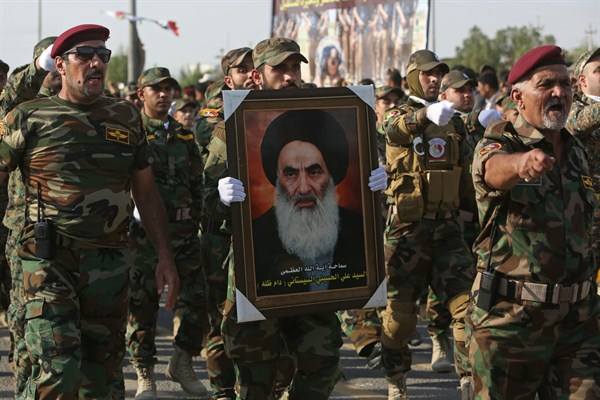Over the course of its armed struggle with the self-proclaimed Islamic State, Iraq has devolved into a state captured by militias and foreign powers. The instability caused by a revived insurgency that took over Iraq’s second-largest city of Mosul in June 2014 has facilitated the emergence of new armed actors and deepened the influence of older ones. The level of security engagement Baghdad receives from the West, including cooperation with the 60-nation coalition against the Islamic State, has not strengthened Prime Minister Haider al-Abadi’s position. His government remains fragile and fragmented, unable to consolidate power and exercise authority over militias that have become necessary in its fight against the Islamic State. In addition, the prime minister is constrained by the inertia of the political system and the vested interests of powerful actors from his own Shiite sect that are averse to reform. Today, his position grows more uncertain as an intra-Shiite Arab power struggle threatens to upend his tenure.
Iraq’s Hodgepodge Government
In early November, Abadi’s efforts to implement a reform agenda that intended to tackle a corrupt and dysfunctional political system were decisively defeated in a unanimous vote in Parliament. From then on, his reform initiatives, which were announced in the summer of 2015 in response to mass demonstrations in Baghdad and southern Iraq, will require Parliament’s approval. This limits any unilateral power the prime minister has to shape Iraq going forward. Opposition to his proposed reforms exposed his vulnerability, which is now visible not only to the public but also to his political rivals. Indeed, despite waging a war focused on reclaiming lost territory on Iraq’s periphery, Baghdad is now preoccupied with a dangerous power struggle within the political establishment that Iran had worked for years to cultivate.

